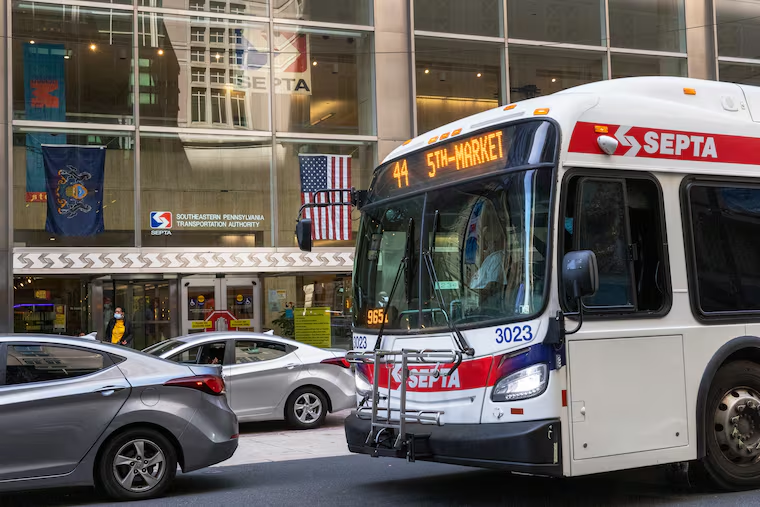SEPTA is proposing a $1.6 billion budget for next year to cover inflation
SEPTA plans to draw from its cash reserve when federal coronavirus relief runs out in 2024.

SEPTA is proposing to spend $1.6 billion in fiscal year 2023 to run the system, a 6% increase driven in part by inflation that has increased prices for diesel fuel, electricity, materials, and services, authority officials said Thursday.
At the same time, the budget targets new spending to grow ridership, including some fare discounts and a recently announced institutional pass program in which several large regional employers will buy Key Cards for workers as a commuting benefit.
No fares will be increased during the fiscal year, which runs from July 1 to June 30, 2023, SEPTA officials said.
The 2023 operating budget will be considered by the SEPTA board at its June meeting, after four virtual public hearings scheduled on May 16 and May 18.
The plan relies on about $423 million SEPTA has received as its share of federal relief for transit agencies that lost revenue when ridership sank during the COVID-19 pandemic. The agency projects its coronavirus relief will dry up in 2024.
» READ MORE: Penn Medicine, Drexel and Wawa will provide free SEPTA passes to employees
“That is not so far away,” SEPTA CEO and general manager Leslie S. Richards said in an interview.
To help replace the aid in fiscal years 2025 and 2026, SEPTA plans to tap its Service Stabilization Fund, a rainy day reserve required since the state legislature overhauled transit funding about a decade ago. The authority has about $300 million in reserve.
“We’ve been very deliberate, and I’d say fiscally responsible,” Richards said. “You hope you don’t need it … but it’s raining.”
SEPTA has not had to use its reserves before, and its five-year budget projections have never been as dire, said Erik Johanson, director of operating budgets for SEPTA. The agency will deplete the rainy day fund to stay afloat, he said — or it would be forced to slash service and raise fares.
“If we didn’t have that extra cushion on the back end of that, we would be having much more difficult conversations right now,” Johanson said.
Even with the rainy day money, the operating budget projects small deficits in 2027 and 2028.
Next week, SEPTA is set to announce its largest-ever capital budget, more than $1 billion for 2023, to pay for major projects like station improvements, new vehicles, and trolley modernization.
A change in state law taking effect July 1 will give the agency more borrowing ability, and officials are planning to use that to issue $550 million in bonds for the capital budget. SEPTA also is getting a $100 million infusion for fiscal 2023 from the federal infrastructure act for capital projects.
» READ MORE: SEPTA will borrow $800 million to pay for projects like station repairs and trolley upgrades
Fuel costs are projected to be up 66.7% from the current budget, or $13 million, even though SEPTA’s consumption is down due to hybrid buses and various other fuel-saving initiatives, Johanson said.
Electric power for trains, subways, and trolleys is expected to cost 25.6% more in the 2023 fiscal year.
The budget proposes offering a new Neighborhood FleX DayPass, aimed at people who ride shorter distances within the city. The pass would cost $10 and could be used for up to 10 rides on buses, subways, trolleys, and Regional Rail Zone 2 service.
And the One-Day Independence Pass would be renamed the “Anywhere FleX DayPass.” It would still cost $13 and be valid for up to 10 rides on buses, subways, trolleys, and all Regional Rail stations for a single day.